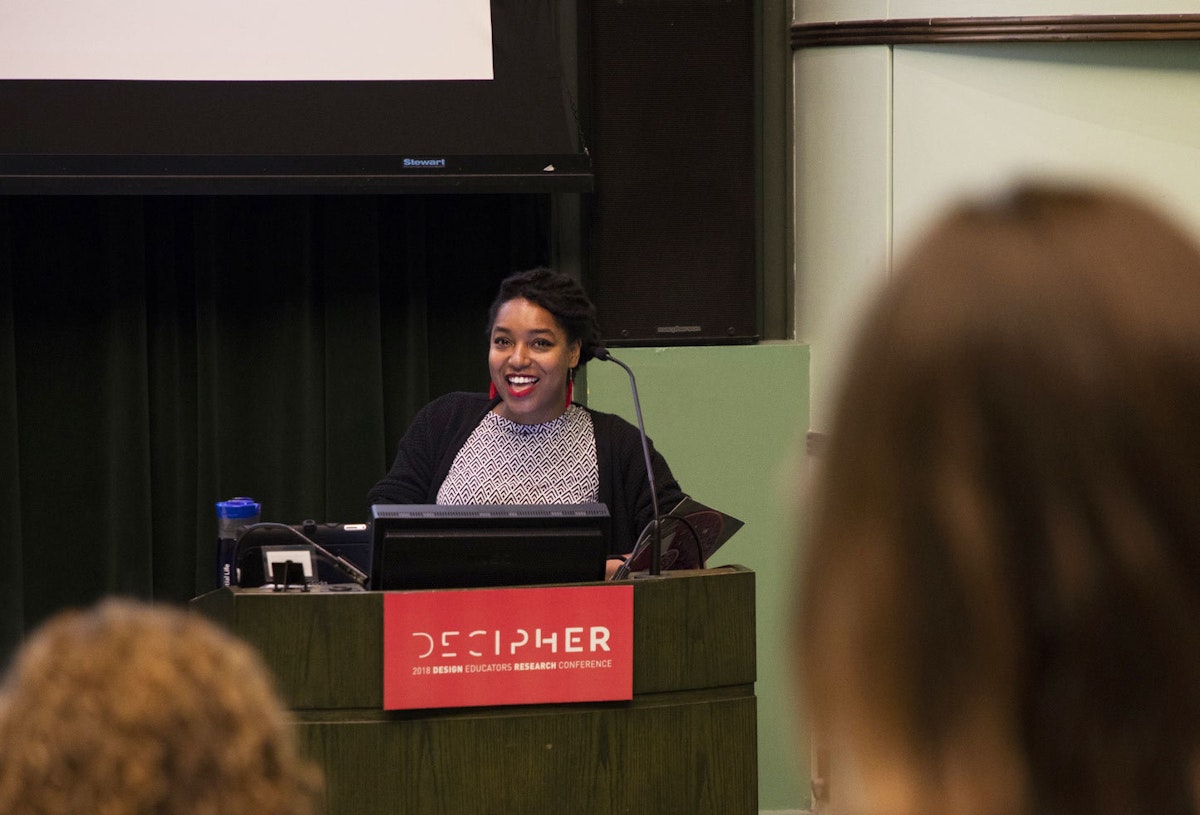Design Research at Stamps: Decipher 2018
Co-chaired by Stamps professors Kelly M. Murdoch-Kitt and Omar Sosa Tzec, the Stamps School of Art & Design hosted Decipher 2018: Design Educators Research Conference from September 27–29, 2018.
Presented by the AIGA Design Educators Community (AIGA DEC) in partnership with the new DARIA Network (Design as Research in the Americas), Decipher was a three-day, hands-on design research conference that defined and explored five core dimensions: defining, doing, teaching, supporting, and disseminating design research. Facilitators, participants and invited keynotes from across the globe attended the conference, totaling 228 design educators, students, researchers, and practitioners in all.
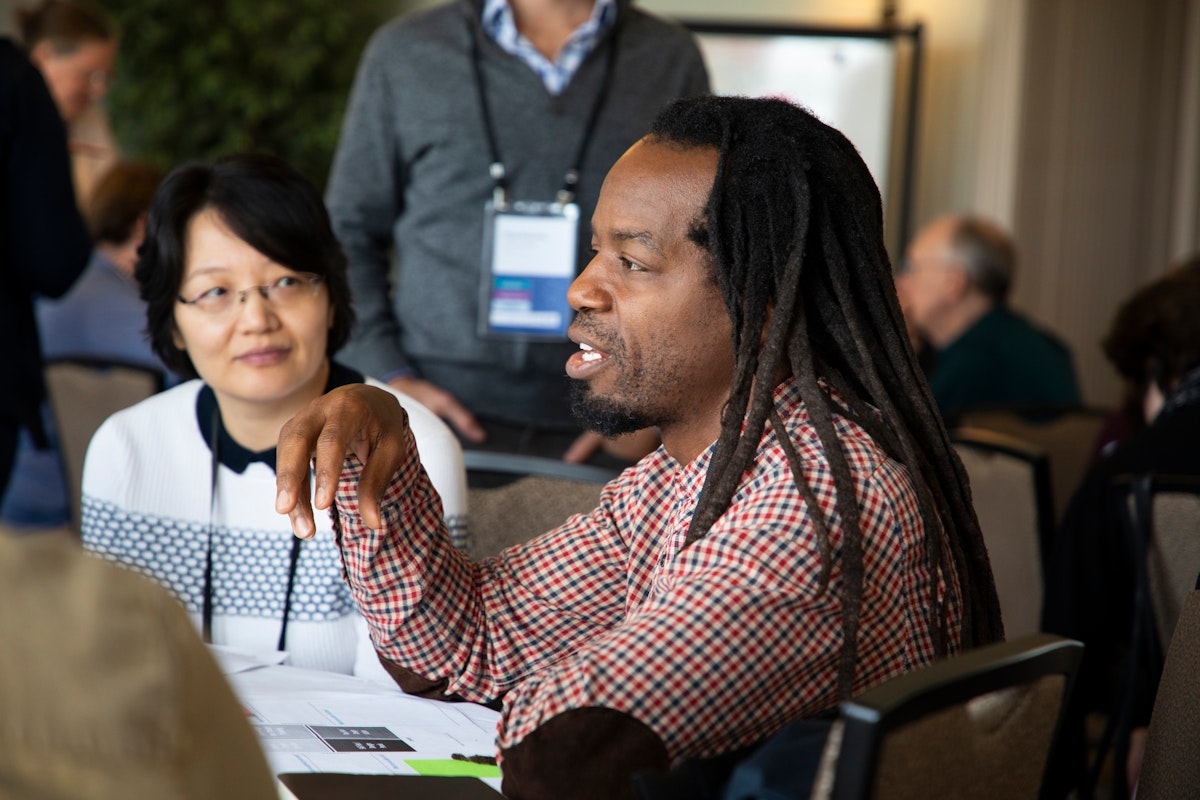
“This is the largest design conference hosted by the school since our naming as the Stamps School of Art & Design,” said Guna Nadarajan, Dean of the Stamps School. “It allowed us to leverage our faculty expertise and our unique positioning within a tier-one research university in service of the field. It was an incredible convening for the design community — both researchers and practitioners alike.”
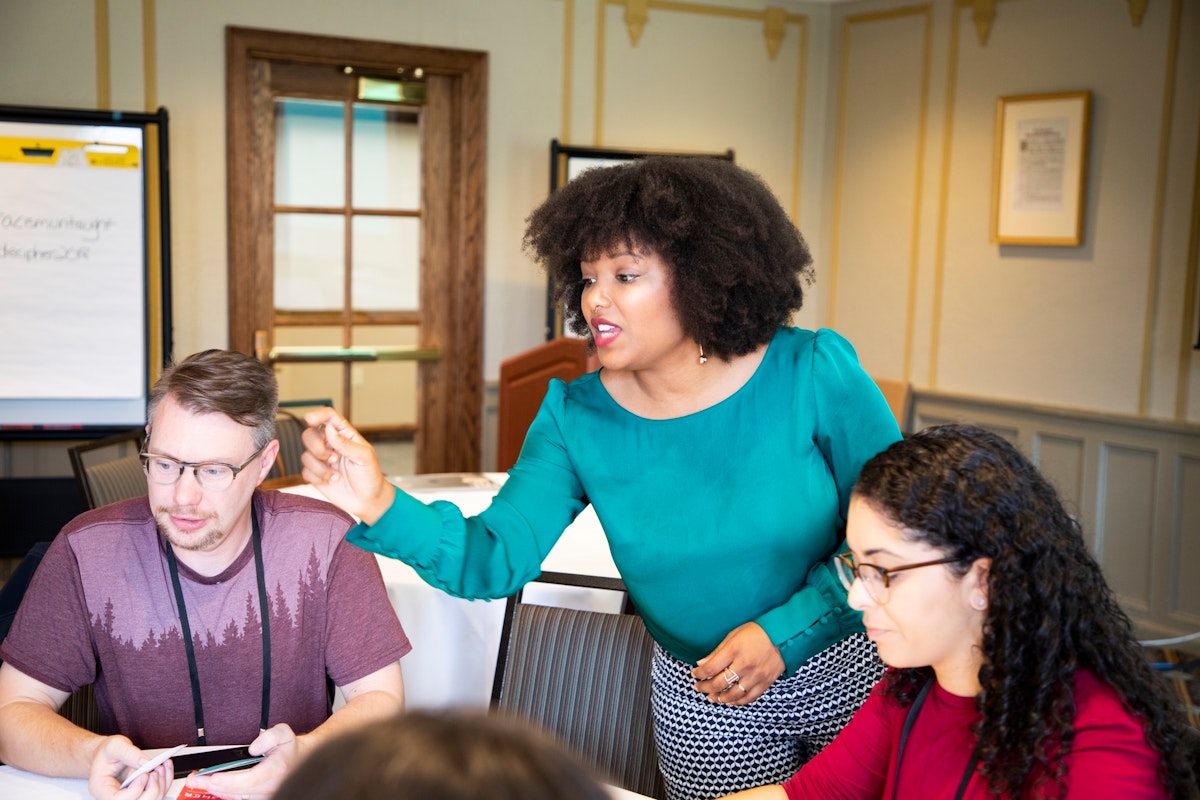
Decipher promised to adopt a unique, interactive format — and it delivered, thanks to the determination, vision, and dogged execution by Murdoch-Kitt, Sosa Tzec, and their assistant Brenna K. Murphy (MFA ‘18). Instead of traditional “paper presentations,” all conference attendees participated in interactive conversations, activity groups, and workshops in addition to keynote addresses and panel discussions.
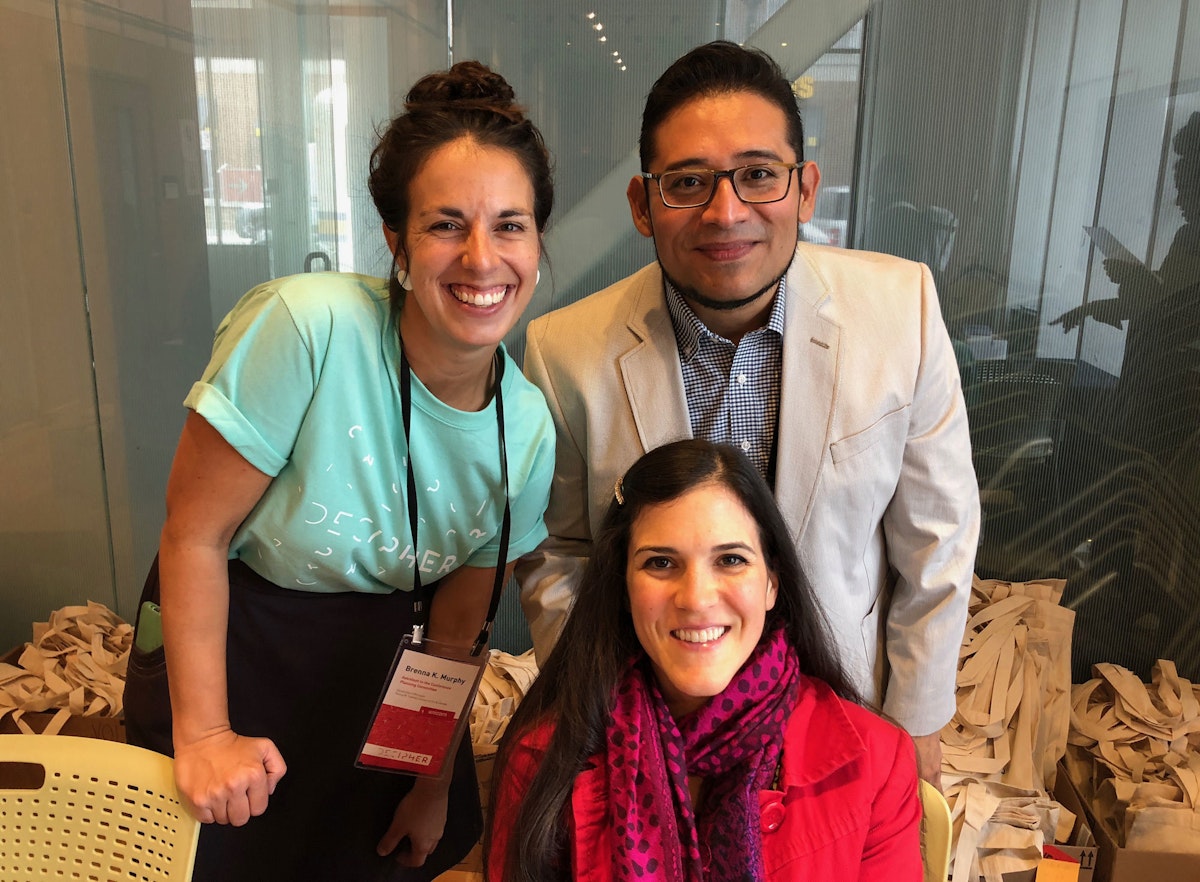
Additionally, Jamie Vander Broek, Librarian for Art & Design, worked with the Cooper Hewitt Smithsonian Design Museum to curate a selection design research titles, many authored by Decipher facilitators and participants. These books were housed in a dedicated, cozy space at Stamps Gallery, dubbed the "Meeting Room,” available to the general public through November 18, 2018.
“For so many conferences, the most valuable thing is the networking, the conversation, and the connections that happen at the coffee break,” said Murdoch-Kitt. “This realization inspired us to invert the format for Decipher. Educators strive to make our classes interactive, engaging, and hands-on; why not make our conferences this way as well?”
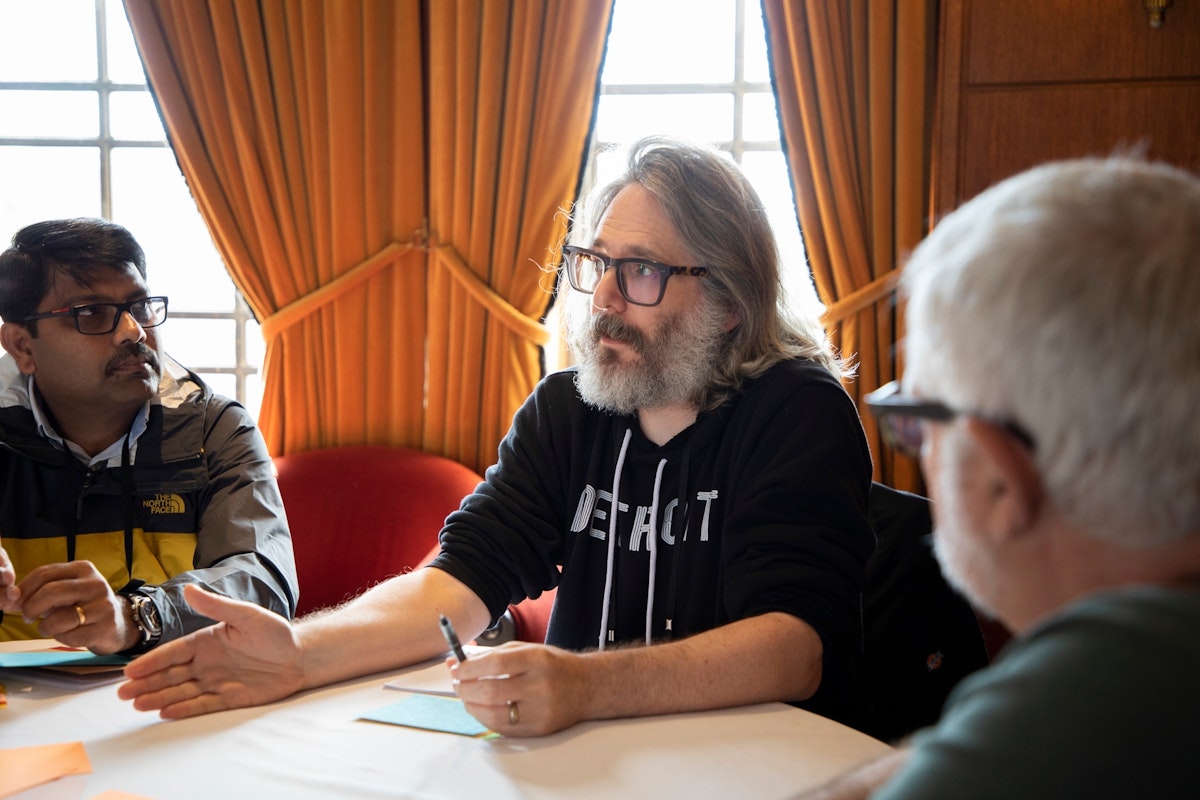
Decipher was also different from many professional development opportunities in that it offered ten Equity Scholarships, funded by the Stamps School of Art & Design and the U-M Office for Diversity, Equity & Inclusion. The scholarships ensured a more diverse set of perspectives and cultural experiences, and allowed early career and senior design researchers to convene on a level playing field — with facilitated conversation to create important moments of interaction.
Also evident at the conference was diversity of thought, specifically in regards to defining design research. For some, design research is exclusively what you do before you make, building a body of knowledge to create informed products, systems, and services. For others, the act of making is a form of research in itself, not only in terms of discovering new techniques and approaches to material use, but in considering new futures and states of the human condition. For many, design research is a hybrid of both. Decipher enabled all camps to be free of prescriptive pedagogical thinking and to learn from one another.
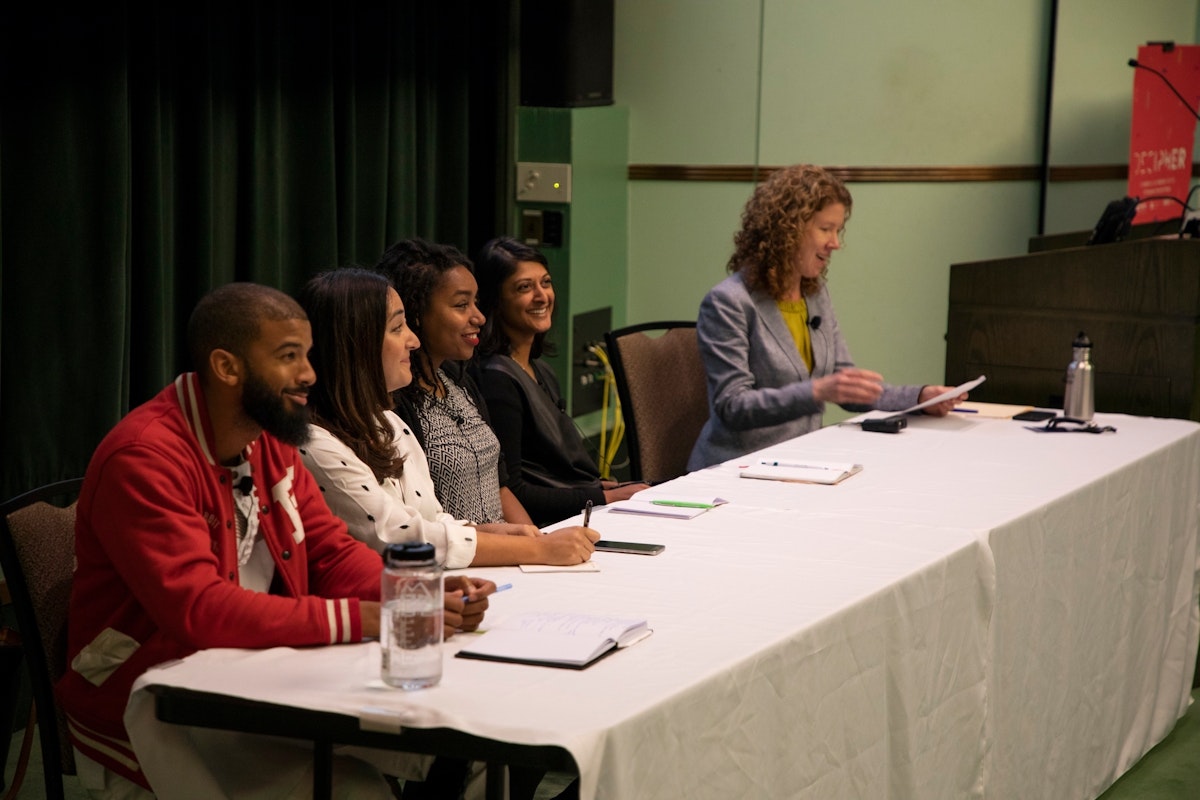
"We all need to be consistently comfortable with flexibility,” Sosa Tzec said. “Design is inherently collaborative with different disciplines. The nature of our work requires us to adapt our discipline, our research in different ways conducive to our areas of collaboration."
Among other areas, sessions also explored topics such as fostering instrumental judgement to enable designers to select appropriate methods; collaboration among multicultural design research teams; mental flexibility; and scenario-based approaches in the classroom.
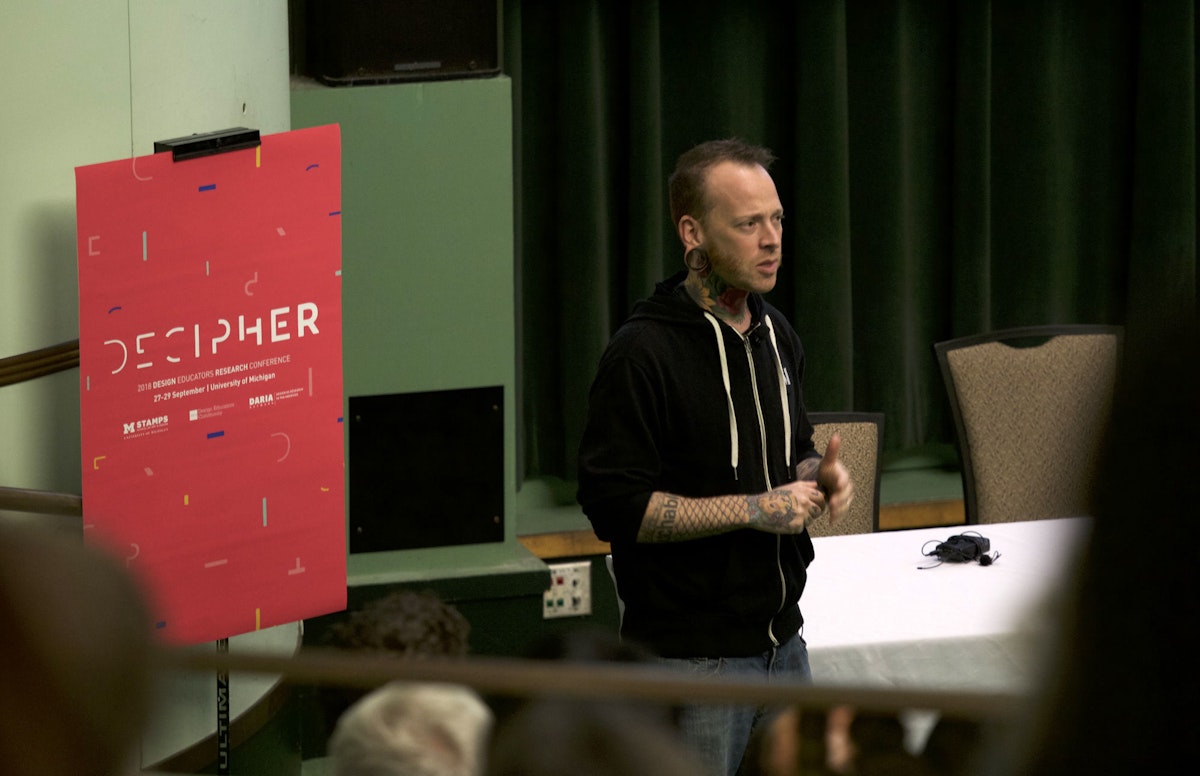
“When we set out to create this conference, we weren't looking to provide one concrete answer,” said Murdoch-Kitt. “Decipher was a moment of convergence in order to share and express that our divergence is okay, and that our different perspectives and approaches can help us add more to our toolkits as design researchers.”
Organized by Murdoch-Kitt and Sosa Tzec, conference proceedings will be published by Michigan Publishing by spring 2019 with the support of Gowri Balasubramaniam (MDes ‘21) and AIGA DEC Board Member Alberto Rigau.
